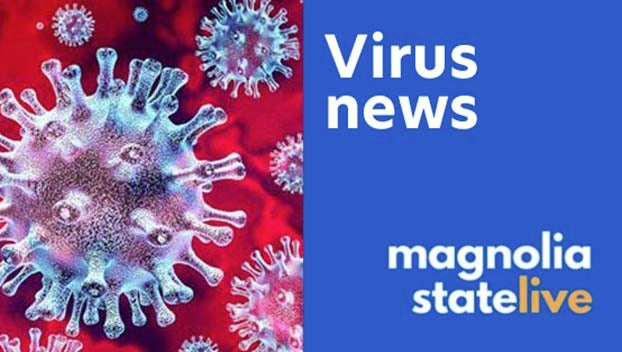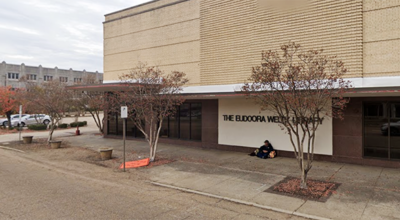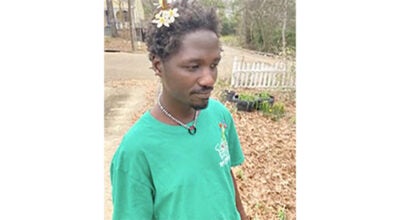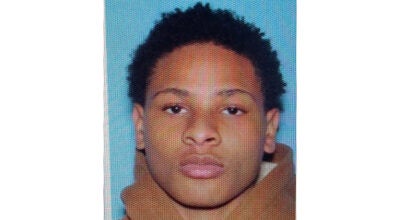Vietnamese community is among Mississippi’s most vaccinated
Published 6:04 am Sunday, August 22, 2021
Before mass on a recent Tuesday afternoon, about 50 people knelt and said the rosary in the sanctuary of Biloxi’s Vietnamese Martyrs Church in Biloxi.
Looking out over the crowd, the Rev. John Thang Pham said all of the worshipers had been vaccinated against COVID-19.
He knows, because he saw many of them get the vaccine right there at the church. He joked with his congregation that he had volunteered to become the first “victim” of the vaccine when he got his first shot in the winter.
“Now, (after) three days, I’m still here, I’m not dying yet, so go ahead and do it,” he told parishioners. “I’m a testament to the vaccine.”
Among regular Sunday attendees, he estimates that about 70% have been vaccinated.
In Harrison County, where the overall vaccination rate of 31% lags behind the state average, that statistic stands out. It also reflects the higher vaccination rate among Asian residents: about 49% of all Asian residents of Harrison County have been fully vaccinated, according to a Sun Herald analysis of U.S. census and Mississippi health department data.
Across South Mississippi, Asian and Pacific Islander residents have the highest vaccination rates of all racial and ethnic groups, outpacing the state average.
The health department does not release data on national origin for vaccine recipients, so it’s not clear exactly how many Coast residents from different Asian communities have been vaccinated. But Daniel Le, head of the Biloxi branch of Boat People SOS, a national nonprofit that serves Vietnamese Americans, estimated about 80% of Vietnamese Americans on the Coast have been vaccinated.
Within the Vietnamese community, the Coast’s largest Asian national origin group with an estimated 10,000 residents, advocates and health care workers say the high vaccination rate is a product of trust in science and medical experts.
“When the call came out to say, ‘Hey, get the vaccine, it’s gonna save your life,’ they were the first in line,” Le said.
ACCESS CONCERNS EARLY ON
When the vaccine rollout began in January, Xuan Tran, who works in community outreach at the nonprofit Mercy Housing and Human Development, was worried. The website and hotline for eligible seniors to make an appointment to get the shot were not available in Vietnamese. And supply was so limited that even when she helped someone navigate the website, there were often no appointments left by the time they’d completed all the forms.
“I personally was really scared,” Tran said. “I was like man, we’re gonna be left behind.”
Earlier in 2020 and 2021, organizations like Boat People SOS had held workshops to explain how the vaccine worked and why it was safe. When they struggled to make appointments, they reached out to Boat People and Mercy Housing for help.
“They tried to do it themselves, but it was very difficult for them to navigate the portal system,” Le said.
Coast community advocates got in touch with the health department, where Selma Alford serves as language access director. The department set up COVID-19 Hispanic and Vietnamese task forces dedicated to providing resources in Spanish and Vietnamese and working with community organizations to promote and distribute vaccines.
Those conversations led to the departments setting aside about 600 doses for a distribution event at the Coast Coliseum in early March.
Ahead of the distribution even in March, Tran and Le helped sign people up for appointments. Demand was so high that Tran had to tell some people it was too late to get a slot.
Six Vietnamese-speaking social workers and nurses were on hand at the Coliseum that day to help people navigate the process.
Chigozie Udemgba, director of the Office of Health Equity at MSDH, said lessons from the Coast Vietnamese community’s approach to the COVID-19 vaccine can be applied across the state.
“We involved the community and asked them how the work should be done,” he said. “They know best. Inform, consult and involve the community.”
TRUSTED ORGANIZATIONS PROMOTING VACCINATION
Angelica Trieu, a pediatric nurse practitioner at Coastal Family Health Center in Biloxi, worked with Father Thang to organize a vaccine drive at Vietnamese Martyrs Church. And outside of formal vaccine distribution events, she serves as a point of contact for Vietnamese speakers in search of a vaccine.
“If the priest comes to me and says hey, I have someone who wants the vaccine, but they don’t speak good English, can they come to your clinic?” she said. “I would get them into the clinic here.”
What happened in South Mississippi’s Vietnamese community reflects a strategy Asian communities have adopted across the country.
When initial vaccine rollouts were not designed to provide easy access for people with limited English proficiency and inconsistent technology access, advocates with deep ties to their communities stepped up to make appointments and organize distribution events in New York City, Austin, Texas, Greensboro, North Carolina, and many other American cities and towns.
Tran said that when the vaccine arrived, it helped that organizations like hers already had deep roots in the community.
“We’re not here because the government paid us to get you vaccinated,” she said. “They trust us, and we’ve been here for a long time.”
SHARING COVID VACCINE INFORMATION IN VIETNAMESE
Cynthia Le, a Vietnamese-speaking nurse practitioner at Singing River’s Ocean Springs clinic, said that early on, she heard concerns about possible side effects from the vaccine, and fears that it would make people sick.
“I tell them it’s probably better to be ill from the vaccine than really ill from being hospitalized, or even death, from COVID,” she said.
Le, who grew up in Biloxi, estimates about half of her patients are Vietnamese. When she was a child, parents, grandparents, aunts and uncles frequently took her with them to doctor’s appointments so she could translate.
“It was kind of scary,” she said. “And not really knowing what they were saying, but trying to make out what they were trying to say and explain it.”
She became a nurse practitioner because she wanted to create a space where Vietnamese-speaking patients could come and get information about their health directly, and feel comfortable asking questions.
Le joined Tran and State Health Officer Dr. Thomas Dobbs in a Vietnamese-language virtual town hall in February to provide information about the vaccine.
Le is also a parishioner at Vietnamese Martyrs Church. This past winter, during Mississippi’s previous peak in cases, she asked Father Thang if she could have five minutes during mass to talk to the congregation.
“We had to tell them look, it’s ok if you have COVID,” she said. “But there’s medicine out there we can give you — monoclonal antibodies. They weren’t aware of that.”
COMBATING MISINFORMATION
Trieu said she felt the vaccine hadn’t become a political issue in the Coast’s Vietnamese community.
“They believe in medicine,” she said, referring to older Vietnamese Mississippians. “They believe in science. A lot of this COVID-19 vaccine, everyone thinks it’s a conspiracy or it has something to do political, and we don’t — we try not to politicize the COVID-19 vaccine. And I think that’s why we have such a high vaccination rate.”
Tran said the language barrier that can drive health disparities for the Vietnamese community on the Coast also caused people with limited English to rely heavily on organizations like Boat People and Mercy Housing for information during the pandemic. And all of those organizations were “all in” on promoting the vaccine.
But misinformation still circulates. Buzzfeed News reported that some far-right Vietnamese American YouTubers with large followings have promoted conspiracy theories like the claim that more people have died from the vaccine than from COVID-19.
In Vietnam, where mistrust of China is deeply ingrained, the government recently backed off plans to distribute a Chinese-made vaccine in Ho Chi Minh City after public outcry.
Thang said anxiety about Chinese-made vaccines in Vietnam had made its way to members of his congregation in Mississippi, though Chinese-made vaccines are not approved for distribution in the United States.
“The Vietnamese nowadays with communication, they talk back to Vietnam, and they’re afraid the vaccine came from China,” he said. “That’s all rumor.”
YOUNGER PEOPLE MORE WARY OF VACCINE
Trieu said she thinks younger Vietnamese Americans are less likely than their parents and grandparents to get vaccinated, and other community leaders agreed.
“They’re more Americanized,” she said. “It’s just like every other excuse that every other unvaccinated person has.”
But Cynthia Le said she had also heard from many parents who were eager to find out when their six- or seven-year-old could get the vaccine.
Health department data does not show the age breakdown of Asian vaccine recipients on the Coast.
“They think they have the immune system and they don’t need it,” Father Thang said of younger parishioners. “But the elders, I can scare the elders.”
And after getting the vaccine himself, explaining the benefits, and organizing vaccination events at church, he has taken a strong stance.
While many other pastors in the Deep South have been “paralyzed or silent” on the vaccine, as one theologian recently told the Associated Press, Father Thang has been clear. When he speaks, his parishioners hear no caveats about personal choice.
“I say: ‘You don’t get it, it’s not right,’” he said. “’You don’t get it, you’re uncharitable to those that sit next to you.’”






